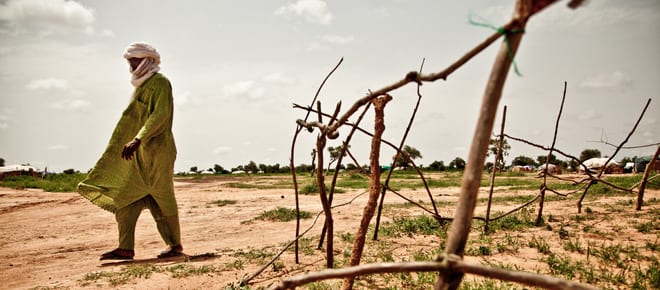The aid effort to help over 147,000 Malian refugees could be overwhelmed as conflict escalates, unless there is a significant shift in the way aid operations are carried out. With the escalation of the conflict, including an offensive by armed groups controlling the north, the recent intervention of French and Malian armed forces and with the UN mandated African-led International Support Mission to Mali (AFISMA) operation set to be deployed, Oxfam warns that the already dire situation for tens of thousands of Malians could get much worse.
News & Media
Situation for Mali refugees to worsen
Thousands more refugees flee their homes: aid effort will not cope with increasing numbers without changed approach
The cost of inequality
An explosion in extreme wealth and income is exacerbating inequality and hindering the world’s ability to tackle poverty, Oxfam warned today in a briefing published ahead of the World Economic Forum in Davos next week.
Mali conflict

Oxfam is extremely concerned that the recent intensification of fighting in Mali, which includes the intervention of French military, could worsen restrictions on humanitarian access and lead to a significant increase the humanitarian needs of populations across the country and in neighbouring states.
Oxfam calls on all military forces in the country, including French and Malian troops already engaged in combat, armed groups in northern Mali, and regional troops yet to be deployed, to respect international human rights and humanitarian law. This includes ensuring all necessary measures are taken to minimise harm to civilians, as outlined in UN Security Council Resolution 2085, adopted in December 2012.
Oxfam’s Country Director in Mali, Michael Quinn, says: “Oxfam calls upon all military forces to ensure the safety of civilian populations and refrain from any actions that jeopardise the ability of humanitarian actors to provide assistance or the ability of civilians to receive it.
We urge all forces, including the French military, to take every possible precaution to ensure that military operations do not cause further harm to already distressed civilian populations, particularly women and children.Oxfam’s Country Director in Mali, Michael Quinn, says: “Oxfam calls upon all military forces to ensure the safety of civilian populations and refrain from any actions that jeopardise the ability of humanitarian actors to provide assistance or the ability of civilians to receive it.
30,000 people are already reported to have been displaced by recent combat, adding to the 345,000 Malians who have been displaced already over the last year. Further fighting will inevitably lead to greater numbers still, and the international community cannot turn its back on those most in need”.
While information remains limited, reports of the humanitarian consequences include 30,000 people estimated to have been displaced by fighting.
In the last 24 hours, nearly 500 new arrivals have been reported in the Fassala transit camp in Mauritania, with thousands more reported to be en route. The main camp in Mauritania, Mbera, already hosts 54,000 people. Refugees are living among populations that are themselves struggling to get by in the face of poverty, food insecurity and limited basic social services. Impoverished host communities, still recovering from a region-wide food crisis last year, now have to share scarce food and water
In December, when adopting UN Resolution 2085, the UN Security Council authorised the deployment of the African-led International Support Mission to Mali, requiring all parties to adhere to applicable international humanitarian law (IHL) and human rights law, as well as take appropriate measures to reduce the impact of military action upon the civilian population.
Oxfam is calling for UN monitors to be urgently deployed and calls on the Malian authorities and France to regularly report to the UN Security council on civilian casualties and human rights violations by all parties, and measures taken to address these. At the same time, no effort should be spared to give high priority to finding a peaceful and lasting political solution to achieve long-term stability in Mali, as requested by the UN Security Council.
Oxfam is providing humanitarian assistance in the Gao region of northern Mali, as well as to Malian refugees in Niger, Burkina Faso and Mauritania. We are supporting populations in need to have access to basic food, clean water and public health related assistance. Oxfam’s programmes aims at reaching 59,250 people in Gao, and over 147,000 refugees and people in host communities in Niger, Mauritania and Burkina Faso.
Winnie Byanyima appointed to lead Oxfam International
Ugandan activist appointed to one of the biggest jobs in development.
[Read more…] about Winnie Byanyima appointed to lead Oxfam International
Haiti earthquake: 3 years on
Three years after the devastating earthquake that hit Haiti in January 2010, hundreds of thousands of people are still living under tents and tarpaulins and the country and its people continue to be very vulnerable.



